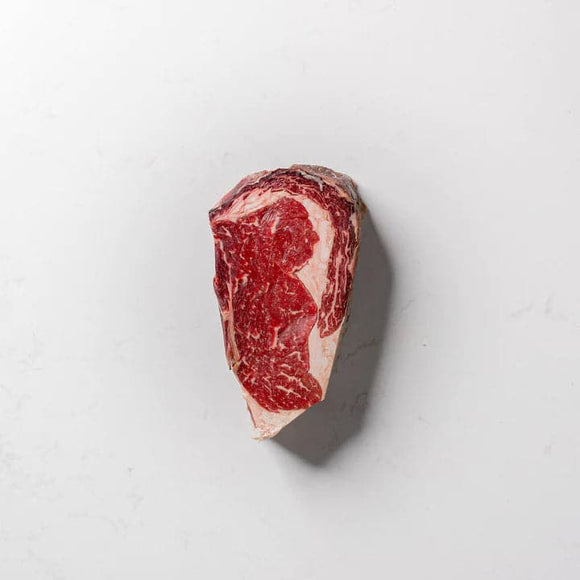A 70-day dry-aged, Prime Grade ribeye is an incredibly high-quality cut of meat that has been aged for an extended period of time to enhance its flavor and tenderness. Dry-aging is a process that involves hanging the meat in a controlled environment with low humidity and good air circulation to allow the natural enzymes in the meat to break down the muscle fibers and create a more intense flavor.
Here's how to prepare a delicious and perfectly cooked 70-day dry-aged, Prime Grade Ribeye:
Ingredients:
- 70-day dry-aged, Prime Grade ribeye steak
- Kosher salt
- Freshly ground black pepper
- Olive oil
- Unsalted butter
- Fresh herbs such as thyme or rosemary
- Garlic cloves peeled
Instructions:
-
Remove the ribeye from the refrigerator and let it come to room temperature for about 30 minutes before cooking.
-
Preheat your oven to 400°F (200°C).
-
Season the ribeye generously with kosher salt and freshly ground black pepper on both sides.
-
Heat some olive oil in a large oven-safe skillet over high heat. When the oil is hot, add the rib eye to the skillet and sear it for about 2-3 minutes on each side until it's browned.
-
Add a few cloves of peeled garlic, some fresh herbs, and a pat of unsalted butter to the skillet. Use a spoon to baste the steak with melted butter and herbs.
-
Place the skillet in the preheated oven and cook for about 6-8 minutes for medium-rare, or longer if you prefer your steak more well done.
-
Once the steak is cooked to your liking, remove the skillet from the oven and let the ribeye rest for at least 5 minutes before slicing. This will allow the juices to redistribute and the meat to be more tender.
-
To carve the ribeye, slice it against the grain into thick pieces.
-
Serve the steak with your favorite side dishes, such as roasted vegetables or mashed potatoes.
Tips:
- It's important to use a meat thermometer to ensure that the ribeye is cooked to your desired level of doneness.
- Avoid using too much salt as the dry-aged steak is already naturally flavorful and may become too salty if over-seasoned.
- Letting the steak rest after cooking is crucial to ensure that the meat is juicy and tender.


